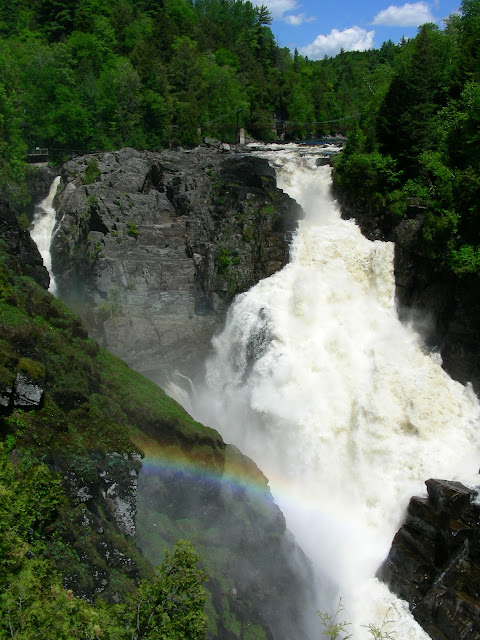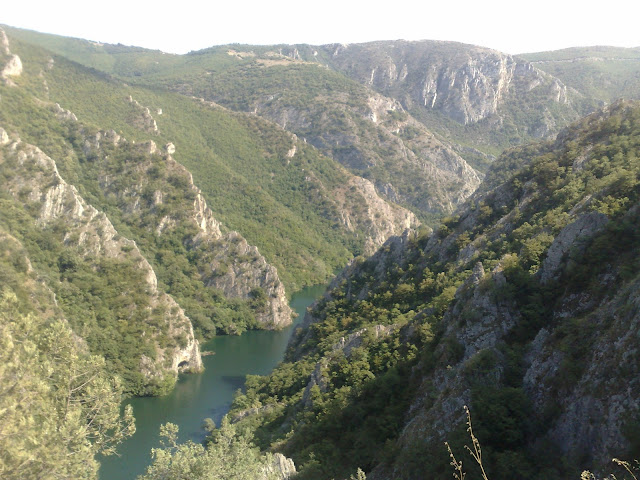 |
| Blyde river canyon |
- A canyon called as gorge.
- It is a deep ravine.
- Between cliffs from the landscape by a river.
- Formed by a process of long-time erosion.
- The cliffs form,harder rock strata are resistant to erosion,weathering.
- Then exposed on the valley walls.
- The word canyon is Spanish in origin.
 |
| Canyon Sainte Anne |
- Canyons are common in arid areas than wet areas.
- Physical weathering has a greater effect in arid zones.
- Wind & water combine to erode less resistant materials (shales).
- The freezing & expansion of water serves to help form canyons.
- Water seeps into cracks between the rocks.
- Then freezes, pushing the rocks apart.
- Eventually large chunks break off the canyon walls.
- This process known as frost wedging.
- Canyon walls are formed of ;
sandstones
granite
 |
| Black Canyon of the Gunnison |
- Submarine canyons form underwater at river mouth.
- Large rivers run through canyons.
- These are called entrenched rivers.
- They are unable to easily alter their course;
-Colorado River,Southwest
-Snake River,Northwest
- Canyons form of limestone rock.
- Limestone is extent soluble.
- A canyon refer to a rift between two mountain peaks;
Rocky Mountains
Alps
Himalayas
Andes
 |
| Fish river canyon |
- Largest canyon" is Himalaya.
- Deepest canyon-Yarlung Tsangpo Grand Canyon (Tsangpo Canyon)5,500 m.
- Kali Gandaki Gorge,Nepal ,6400 m.
- Grand Canyon,Northern Arizona (volume-4.17 trillion cubic metres)
- The second largest canyon is Fish River Canyon,Namibia.
- Copper Canyon,Chihuahua, Mexico-deeper and longer than the Grand Canyon.
e.g.
- Black Canyon of the Gunnison, Colorado, United States
- Blyde River Canyon, Mpumalanga, South Africa
- Canyon de Chelly, Arizona, United States
- Canyon Sainte-Anne, Quebec, Canada
- Charyn Canyon, Kazakhstan
 |
| Matka Canyon |

No comments:
Post a Comment